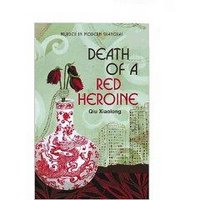At home in Bombay and Shanghai
But they didn't. Qiu’s characters crowd into subdivided stone shikumen, where they share communal kitchen facilities, mingle in courtyards, and sleep in rooms carved out of spaces on stairway landings. Some of Chandra’s live in kholis, where they may roll out sleep mats in the kitchen at night, or subdivide the one open living area with curtains. By no means is every kholi wretched. A police officer compliments a murder victim’s mother on the nice kholi his son built for the family. An especially proper or upscale dwelling may be referred to as a pucca kholi.
It does not take long before the very words shikumen and kholi conjure up universes of connotations, colors, smells and sounds – and, for readers like me, strangers to the cities where the novels are set, an entirely new kind of space.
It occurs to me, too, that Qiu and Chandra, natives of China and India, respectively, write in English. This, perhaps, makes them all the more eager to make Chinese and a range of Indian languages part of the fiber and substance of their work.
© Peter Rozovsky 2007
Technorati tags:
Qiu Xiaolong
Vikram Chandra
Sacred Games
Crime fiction, China
Crime fiction, India
Labels: Asia, China, India, Inspector Chen, Qiu Xiaolong, Vikram Chandra




